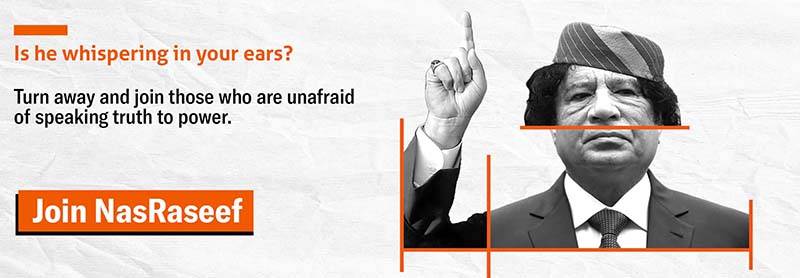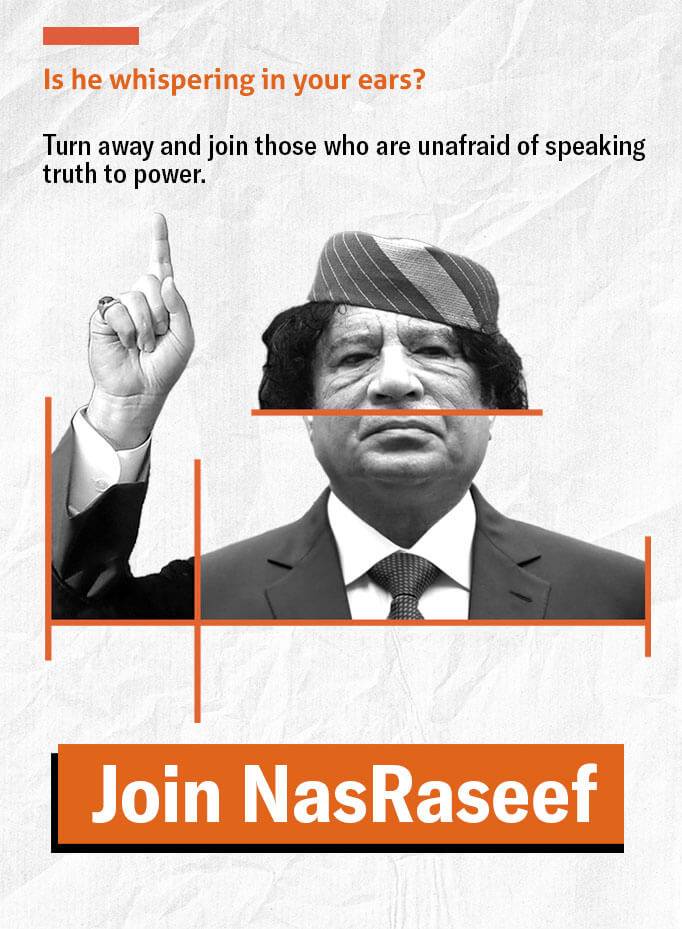It was not the first time that Najah left her home in Syria, nor the first time that she was forced to leave. But the period between each departure and return, followed by yet another departure, is populated by hope and suffering.
Najah is 60 years old, and has lived in a home in Miniyeh, in northern Lebanon, for the past four years with her son, Ahmed. Overwhelmed by nostalgia, Najah is still trying to get accustomed to looking around her and not seeing her children and grandchildren playing and rushing to take a seat at the dinner table. Of eight of her own children, and 13 grandchildren, only one remains with her in Lebanon. The rest are scattered between Turkey and Iraq, Aleppo and Austria, Syria, Australia, and the Netherlands, and she in Lebanon, dreaming of the day they will reunite.
“The last time we gathered was four years ago, in my house in Aleppo,” she says with a sigh. “How I miss our gatherings around the dining table. My children would gather around me on Mother’s Day and give me gifts.”
When Najah first left her hometown of Idlib to live in Kuwait, she was a newlywed, excited to start a new life in a new place. She spent 14 happy years there with her husband, Nihad, in Kuwait, before the Second Gulf War forced them out, with their seven children at the time, leaving behind everything they had worked for over the years.
Once again in October 2012, Najah would depart from her home, with her daughter Shaimaa and her son Ahmed, heading to her daughter Hala’s home in Lebanon, with nothing but a suitcase in her hand. “I didn’t want to leave, I didn’t want to leave my family and my neighbors. But the situation was terrible, so I told myself I would go for a while, thinking the crisis wouldn’t last for more than a few months. I had even only packed my winter clothes, hoping to be back before the beginning of summer. There was still hope then,” she says.
Upon meeting Najah, one finds her smiling, despite her struggle. She spends long days at home alone, and when she goes out to visit relatives or neighbors, she enjoys exchanging anecdotes and telling stories about her children and grandchildren. These stories make her feel closer to them, slightly alleviating her sense of longing.
Najah regularly visits the Médecins Sans Frontières clinic in the town of Al ‘Abdah in northern Lebanon, to receive medical care and treatment for her high blood pressure. During one of her visits, she was surprised to find that she had been diagnosed with diabetes.
Najah is certain that her struggle and her psychological state over the past four years are the cause behind her illness, though she is happy with the treatment she is receiving. “The doctors don’t suffice to simply examine me and provide me with prescriptions. They also provide me with psychological support and guidance, to help me adapt to the illness and manage it properly,” she says.
[h2]Dreams of Return[/h2]
Najah’s troubles are many; she thinks of her husband, who recently returned to Syria to try to secure his pension, and has yet to return. She has since lost contact with him. She also worries about how she will secure the $400 she needs for her and her son’s paperwork in Lebanon. She thinks of all the problems she cannot find solutions for, and of how she will secure her life, and of her missing husband, and her son who finds difficulty moving around due to the restrictions imposed on refugees by the Lebanese government.
She drifts into her thoughts, then reemerges to reality, to say: “Thank God for everything. Despite the difficult circumstances and challenges I face in Lebanon, I am thankful that I have a roof over my head, and kind people around me. This is better than leaving under the constant fear of being bombed.”
Though Najah dreams of one day returning to her home in Aleppo, she says she cannot begrudge her children for not doing the same. By now, they all have their new lives elsewhere.
This article was published in cooperation with Médecins Sans Frontières.
Raseef22 is a not for profit entity. Our focus is on quality journalism. Every contribution to the NasRaseef membership goes directly towards journalism production. We stand independent, not accepting corporate sponsorships, sponsored content or political funding.
Support our mission to keep Raseef22 available to all readers by clicking here!




Join the Conversation
جيسيكا ملو فالنتاين -
22 hours agoجميل جدا أن تقدر كل المشاعر لأنها جميعا مهمة. شكرا على هذا المقال المشبع بالعواطف. احببت جدا خط...
Tayma Shrit -
2 days agoمدينتي التي فارقتها منذ أكثر من 10 سنين، مختلفة وغريبة جداً عمّا كانت سابقاً، للأسف.
Anonymous user -
2 days agoفوزي رياض الشاذلي: هل هناك موقع إلكتروني أو صحيفة أو مجلة في الدول العربية لا تتطرق فيها يوميا...
Anonymous user -
2 days agoاهم نتيجة للرد الايراني الذي أعلنه قبل ساعات قبل حدوثه ، والذي كان لاينوي فيه احداث أضرار...
Samah Al Jundi-Pfaff -
4 days agoأرسل لك بعضا من الألفة من مدينة ألمانية صغيرة... تابعي الكتابة ونشر الألفة
Samah Al Jundi-Pfaff -
4 days agoاللاذقية وأسرارها وقصصها .... هل من مزيد؟ بالانتظار